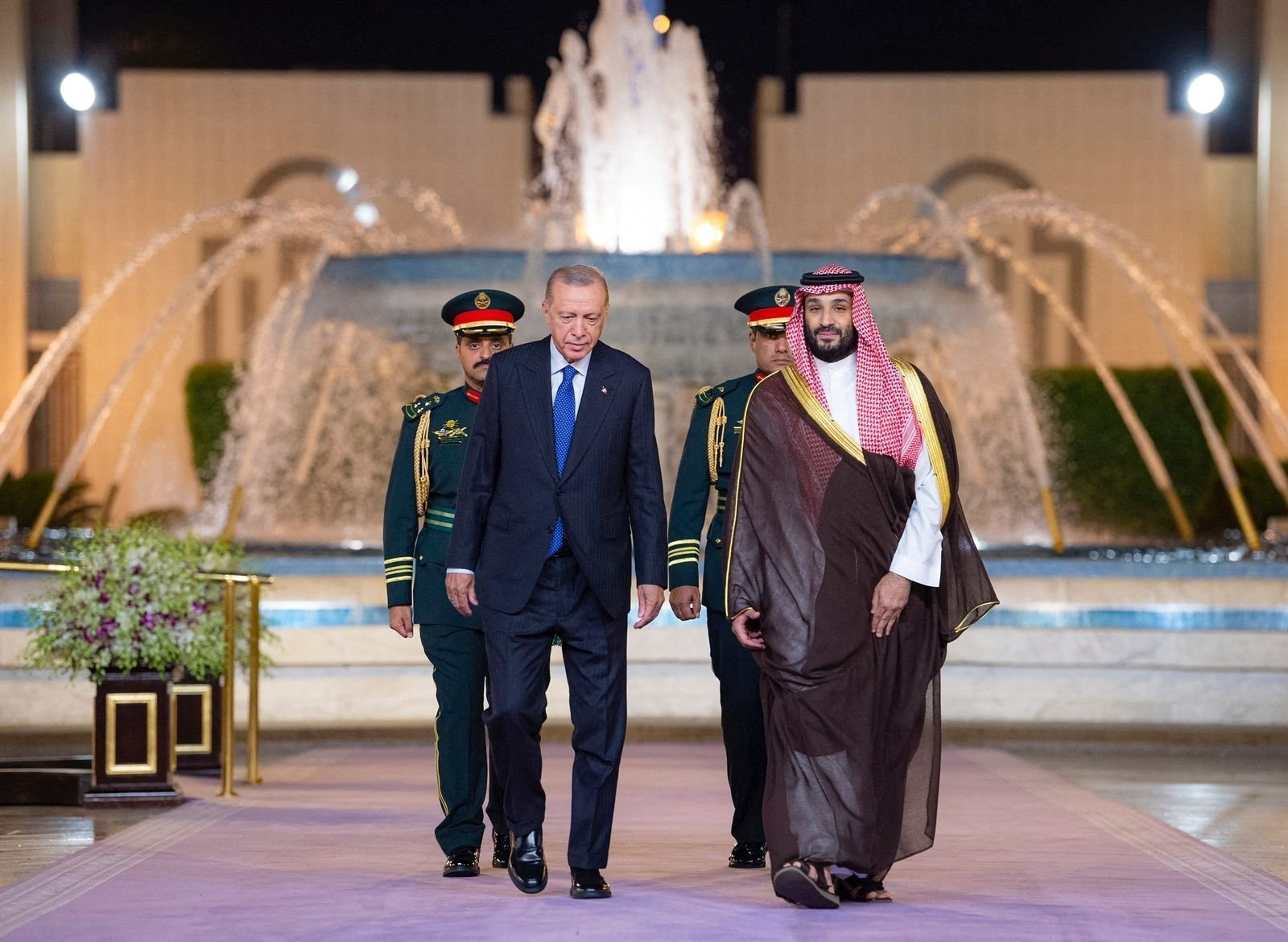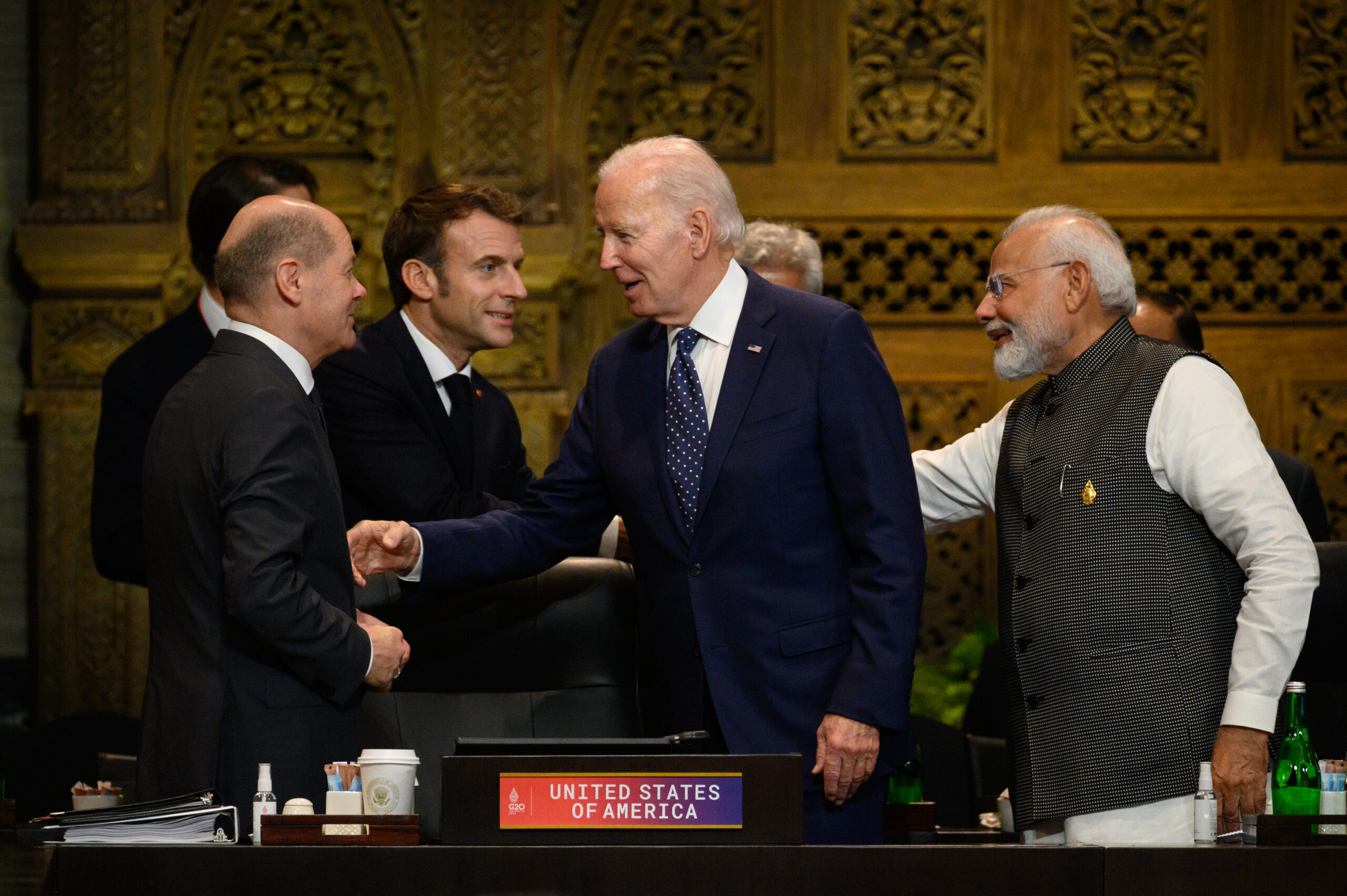Turkish President Recep Tayyip Erdogan’s recently concluded three-days Gulf tour which started on Monday July 17, encompassing visits to Saudi Arabia, the United Arab Emirates, and Qatar, has sparked both hope and skepticism regarding its objectives. While Erdogan aims to attract foreign investment to revive Turkey’s struggling economy, some question whether the tour is simply an attempt to secure financial bailouts. President Erdogan’s Gulf tour presents an opportunity for Turkey to strengthen economic ties and attract foreign investment, but concerns remain about the underlying motivations and whether it merely seeks financial support.
Erdogan’s Gulf tour holds significant potential for strengthening economic ties between Turkey and the Gulf countries. His primary focus during the tour is to promote joint investment and commercial activities with Saudi Arabia, the UAE, and Qatar. Over the past two decades, Turkey’s trade with the Gulf nations has experienced remarkable growth, surging from $1.6 billion to approximately $22 billion. This upward trend showcases the vast potential for mutually beneficial economic cooperation. Furthermore, the growing interest of the Gulf countries in diverse sectors presents Turkey with a valuable opportunity to expand its exports and address the pressing economic challenges it currently faces. By tapping into this interest, Turkey can diversify its economy and alleviate some of the strains caused by the currency collapse and soaring inflation.
The question of financial bailouts looms over Erdogan’s Gulf tour, given Turkey’s current economic challenges. The country is grappling with a currency collapse and soaring inflation, which have had severe repercussions on its economy. Consequently, concerns arise regarding whether Erdogan’s visit to the Gulf is primarily motivated by the intention to secure financial assistance. The timing of the tour, closely following his re-election, raises suspicions that it may be a strategic move to garner support amidst domestic economic struggles. Moreover, Saudi Arabia’s earlier deposit of $5 billion into Turkey’s central bank adds weight to the possibility that Erdogan’s Gulf tour aims to secure additional financial aid rather than solely focusing on fostering economic cooperation. These factors underscore the need for critical examination of the motives behind Erdogan’s visit and the extent to which financial assistance plays a role in his discussions with Gulf leaders.
However, Erdogan’s Gulf tour may also demonstrates Turkey’s commitment to enhancing economic ties and attracting foreign investment, with the country’s economic challenges necessitating support from its Gulf allies and not just Erdogan’s bailout plans.
Erdogan’s Gulf tour not only aims to strengthen economic ties but also emphasizes the importance of cooperation and bilateral relations between Turkey and the Gulf states. The visit following critical elections in Turkey highlights the significance of the Gulf states within Turkey’s foreign policy agenda. It demonstrates Erdogan’s recognition of the Gulf countries as key partners in advancing Turkey’s diplomatic goals.
Furthermore, Erdogan’s trip to Doha, Qatar, showcases the mutual desire to boost cooperation and expand investments between Turkey and its Gulf partners. The visit serves as a testament to the commitment of both nations to nurturing strong bilateral relations and exploring new avenues for collaboration.
The recent signing of a significant drone deal between Saudi Arabia and a Turkish firm adds another layer to the potential for enhanced economic collaboration. This deal, along with other contracts covering various sectors, signifies the willingness of both countries to engage in strategic partnerships and leverage their respective strengths. The Saudi-Turkish drone deal not only strengthens defense capabilities but also underscores the broader scope of economic opportunities that can be explored between the two nations.
All in all, Erdogan’s Gulf tour goes beyond mere economic considerations. It underscores the significance of the Gulf states in Turkish foreign policy and signals a positive outlook for bilateral relations. The recent Saudi-Turkish drone deal and the diverse range of contracts signed during the visit demonstrate the potential for expanded economic collaboration and solidify the foundation for stronger ties between Turkey and its Gulf partners.
President Erdogan’s Gulf tour serves as a critical opportunity for Turkey to strengthen economic ties and attract foreign investment, providing potential relief for its struggling economy. While concerns about financial bailouts linger, the importance of nurturing cooperation and bilateral relations with Gulf allies cannot be disregarded. As Turkey navigates its economic challenges, diplomatic engagements like the Gulf tour hold the promise of mutual prosperity if conducted with transparency and genuine intentions.
















